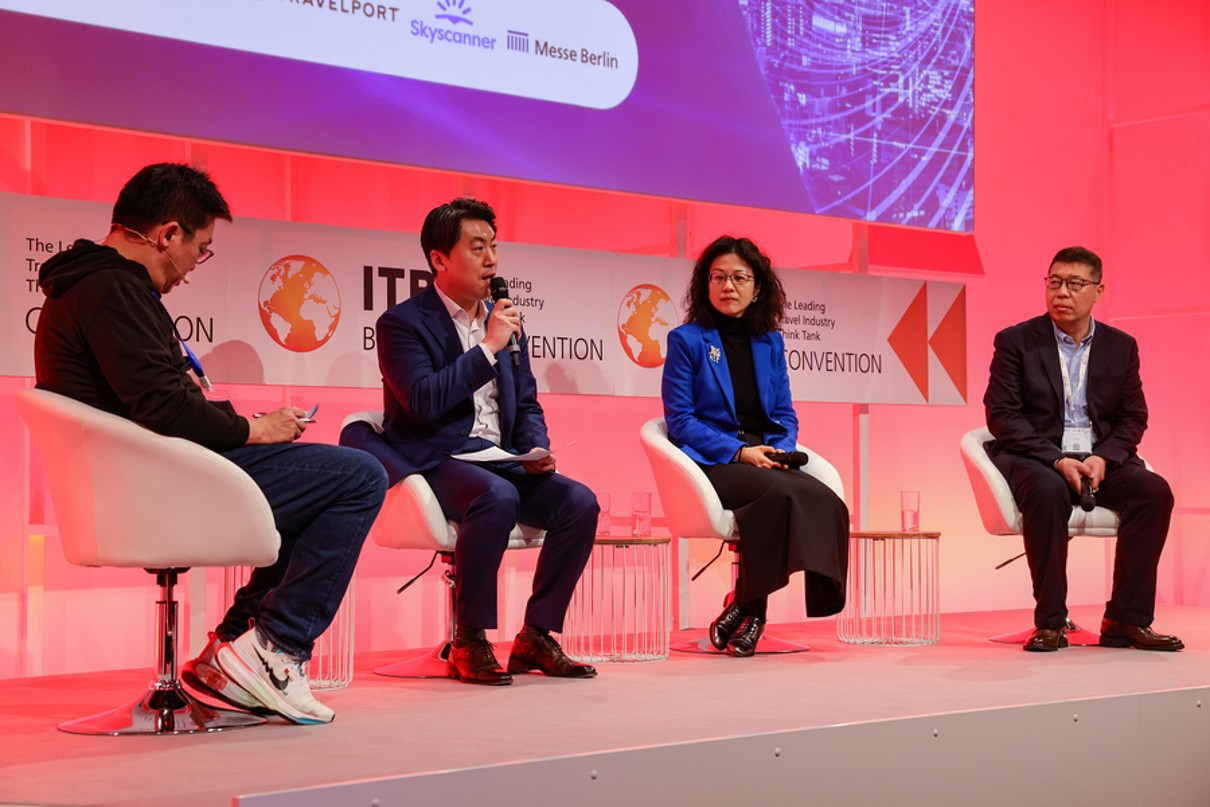Page content
Super-apps are about to conquer the travel industry
Tourism with its often complex booking requirements for providers and users alike presents an ideal case for using super-apps, which with the help of AI can establish intelligent links and analyse needs. This was put forward at a panel discussion on Thursday on the eTravel Stage at ITB Berlin. All the panellists were employed by Asian companies, where corresponding platforms are already on the market. China’s WeChat for example is considered a super-app.
According to Jongyoon Kim of the South Korean travel platform Yanolja, it was difficult to overestimate the role of AI in this context. It could act as a personal assistant for an entire trip, but also help with organising various booking activities on a single platform. Providers would have a decisive advantage over competitors once a customer had made use of a single interface for different services.
Vivan Zhou of the Chinese hotel chain Jin Jiang said a provider could offer optimum solutions once a user’s interests were known and “before they begin planning“, i.e. when their preferences were known from previous activities. A super-app’s efficiency depended directly on the depth of information on the user.
Zhiwei Bai of the Chinese travel platform Tongcheng Travel (ly.com) pointed out that complex travel in the modern age had its roots in Europe and had been refined in the US. Asian companies had however initially built numerous bypass functions into booking procedures. Companies in Europe and the US who maximised these benefits such as Mark Zuckerberg’s meta in the metaverse had a decisive advantage. These engines combined the various elements at least ten times faster than through human interaction.
All the panellists agreed that software advances and economic development were still in their infancy, so that one could not say which app was best or would win out in the end. Data protection issues also remained unresolved.

.svg)

